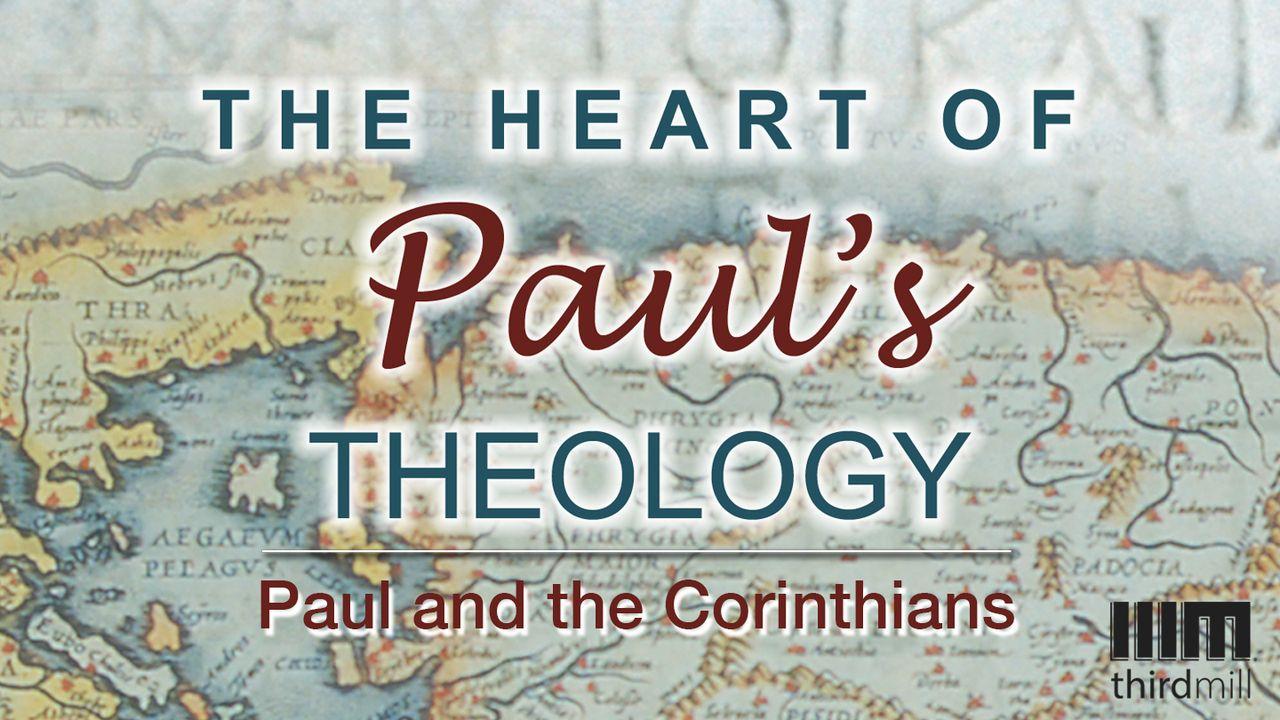The Heart Of Paul’s Theology: Paul and the Corinthians预览

Response to Letters: 1 Corinthians 7:1–16:12
The second major section of the main body of 1 Corinthians runs from 7:1–16:12. This is where we find Paul’s responses to the Corinthian church’s questions: On the subjects of marriage in 7:1-40; in chapters 8–10 meat sacrificed to idols; 11:2-34 deals with questions about worship and is not identified as being responsive to questions from the Corinthians; in chapters 12–14 spiritual gifts; chapter 15 introduces the subject of the resurrection of all believers; in 16:1-12 the collection for the church in Jerusalem, and Apollos.
The first questions to which Paul responded dealt with marriage, remarriage and singleness. Paul took up these subjects in 7:1-40. Some believers in Corinth adopted asceticism and sexual abstinence even within marriage. The tendency of some Corinthian believers toward asceticism seems to have given rise to questions about sexual behavior within marriage and about the honorableness of marriage itself. In response to this, Paul affirmed both marriage and singleness and insisted that marriage must include a sexual element. But he also taught that singleness is more advantageous than marriage because singleness allows believers to focus more on “the things of the Lord,” that is, on the interests of Christ’s kingdom. Some believe that Paul advocated singleness over marriage only during situations of crisis, while others equally apply his instructions to all believers at all times since the first coming of Christ.
In chapters 8–10 Paul addressed the subject of meat that had been sacrificed to idols. We have already spoken of meals served in idols’ temples, which is the main topic of chapter 8. But in common practice, pagan temples did not eat or serve all of the meat from the animals they butchered, and they often sold the remainder. So, in chapter 10, Paul wrote about meat purchased in the marketplace. He defended believers who ate this meat, so long as they did not do so as an act of pagan worship or in violation of their conscience. But he also taught them not to eat when their actions were likely to be mistaken for idolatry. In the intervening material of chapter 9, he explained his own willingness to restrict Christian freedom, implicitly asking others to do the same.
In chapter 11, Paul turned to two matters relating to worship: gender roles, which he addressed in verses 2-16, and the mistreatment of the poor during the Lord’s Supper, which he dealt with in verses 17-34. The same arrogance and ego-centrism that had led to factions in the church, to lawsuits, and to stumbling weak Christians with food, had also produced believers that disrespected one another in worship. Not surprisingly, Paul’s solution was not just to stop the offending behaviors, but also to change the attitudes of the heart.
In chapters 12–14, Paul addressed problems related to the use of spiritual gifts. In chapter 12 he explained that the Holy Spirit did not give gifts in order to enhance the status of those gifted or as a reward to the righteous; rather, he gifted people according to the needs of the church.
In chapter 13, which is commonly known as the “love chapter,” Paul explained that all spiritual gifts were to be used in love and that, if they were not used in this way, they were worthless.
Finally, in chapter 14, he rebuked the Corinthians for their disorderly worship services and gave instructions on how they were to restrain their use of gifts in public worship.
Chapter 15 introduces the subject of the resurrection of all believers. Evidently, some in the Corinthian church denied that believers would be raised bodily from the dead. In response to this error, Paul explained that Christ’s resurrection was key to the gospel, and that in order for believers to receive final salvation, they would have to be raised just as Jesus was.
Paul completed his answers to the Corinthian’s questions in 16:1-12 by giving them instructions on how to take up the collection for the needy church in Jerusalem, and by making a few comments about Apollos.
读经计划介绍

This reading plan explores the background to Paul's letters to the Corinthians, examines the structure and content of First and Second Corinthians, and reveals his eschatology.
More

